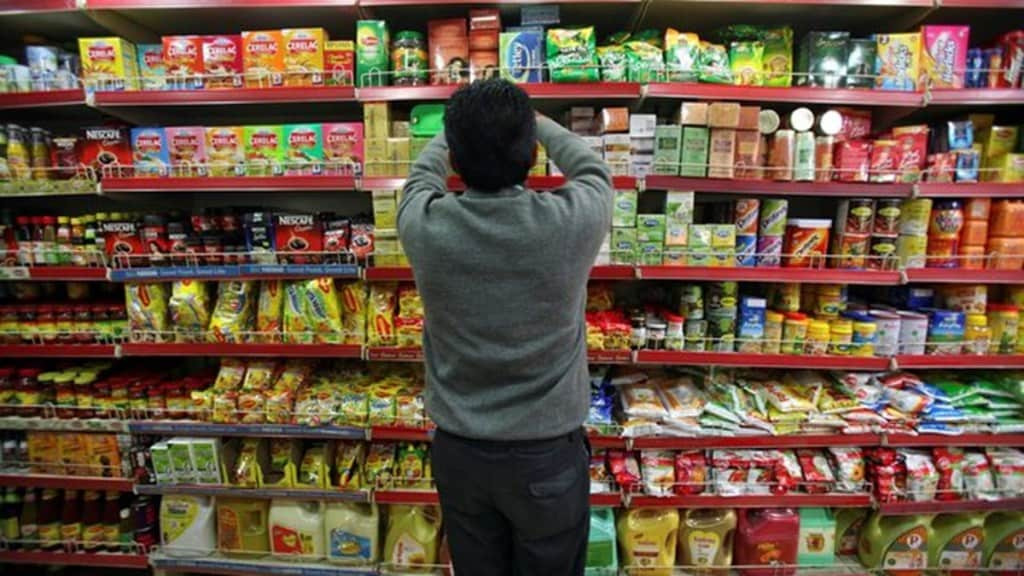Fast-moving consumer goods (FMCG) companies have lost nearly 9% of their market value or Rs 2.11 lakh crore in 13 trading sessions on the Nifty FMCG Index as the Budget rally fades. This is the longest losing streak on record for these stocks, even as the Nifty FMCG Index jumped 3% on February 1, after the government announced income tax cuts to fuel consumption.
Among the index constituents, stocks of Varun Beverages and ITC have plunged nearly 20% and 12%, respectively, in the last 13 sessions. That is followed by Colgate-Palmolive (10.11%), United Spirits (8.71%), Hindustan Unilever (7.96%), United Breweries (7.5%) and Godrej Consumer (6.97%), as investors have remained largely sceptical of a spurt in demand, especially in urban areas. FMCG companies derive two-third of their revenue from urban areas and a third from rural areas.
Investors, said experts, are back to monitoring FMCG demand trends and margin pressures closely, amid inflation and real wage growth concerns. While demand in urban areas has been muted, rural areas have seen a sharp revival, market researcher NielsenIQ said. Rural volume growth has outpaced urban volume growth by two times in the December quarter, NielsenIQ data shows, with the trend likely to get stronger in the coming quarters.
Most FMCG companies that FE spoke to have admitted that the income tax cuts announced in the Budget will be utilised to pare debts and some portion could go into making some key discretionary purchases.
“The Budget enhancement of minimum taxable income from Rs 7 lakh to Rs 12 lakh is a welcome step. But the relief will go towards enhanced saving or paring debt. Some portion may go towards consumer spending,” Suresh Narayanan, chairman and MD, Nestle India, said.
Tax experts have indicated that about a third of the tax relief, estimated at Rs 1 lakh crore, could go into consumer expenditure, the rest into saving and investment. Moreover, the spectre of rising food inflation and stagnant wage growth could also eat into consumer spending as the middle class seeks to conserve its financial resources for the future.
“Inflation is a real concern for the middle class and something that will have to be monitored closely, even as the finance minister has put more money in the hands of consumers,” Mohit Malhotra, chief executive officer (CEO), Dabur India, said.
Analysts have said that FMCG companies will need to focus on more cost saving measures to counter inflation and may need to put more feet on the ground in rural areas to capitalise on growing demand in the hinterland. Companies are also sharpening their focus on channels such as quick commerce that have grown sharply in the last few quarters amid the overall urban slowdown. Companies now derive over a third of their online or e-commerce sales from quick commerce, with the trend expected to grow as urban consumers seek instant gratification and convenience.


